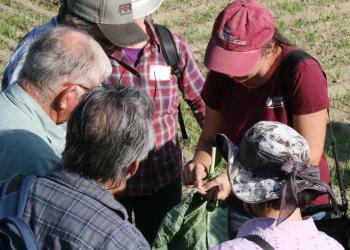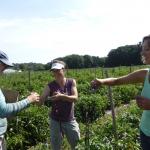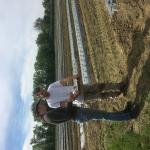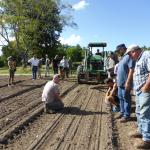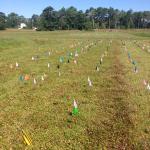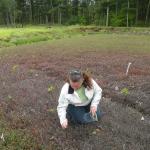Timeframe: 2017-2021
Through increased adoption and implementation of effective IPM strategies, this EIP Project supports National Integrated Pest Management (IPM) Road Map goals of achieving increased profitability while reducing human health and environmental hazards. We will address stakeholder-identified priorities by integrating applied research and outreach activities for specialty crop growers in Massachusetts. Massachusetts produces more than 70 types of specialty crops and many of the farmers we work with grow more than 30 different crops on their farms. This project will focus on whole-farm IPM approaches tailored to fit diverse specialty crop growers. Specific commodity issues identified as high priorities by growers will be addressed through our applied research and demonstration trials and outreach programs.
We will promote IPM implementation by working closely with individual growers to adopt and apply IPM practices on their farms, conduct applied research trials to address grower-identified issues, host hands-on training and education, and collaborate with state agencies and Northeastern Extension personnel to develop and disseminate innovative educational and training resources. Evaluation and economic specialists on our team will provide expertise to increase our understanding of the influence of environmental and socioeconomic factors that affect farming decisions. We will use our current working relationships with individual stakeholders to engage Mentor, Partner, and Collaborator farmers, an outreach model we have successfully deployed over the past 6 years. Our leadership and partnership roles with Extension colleagues in New England and industry and regulatory organizations will continue to further IPM implementation for specialty crop farms in MA. Responding to stakeholder-identified needs, we will expand our skill capacity by participating in professional development programs to improve technical and educational support for MA specialty crop growers.
This project has three overall goals:
- Improve IPM practices and strategies related to emerging, invasive, and established pests of specialty crops;
- Increase IPM implementation and promote whole-farm sustainability through outreach and training activities and demonstrating effective technological strategies; and
- Promote adoption of IPM by expanding and improving the skill capacity of Extension personnel, IPM practitioners, and growers.
